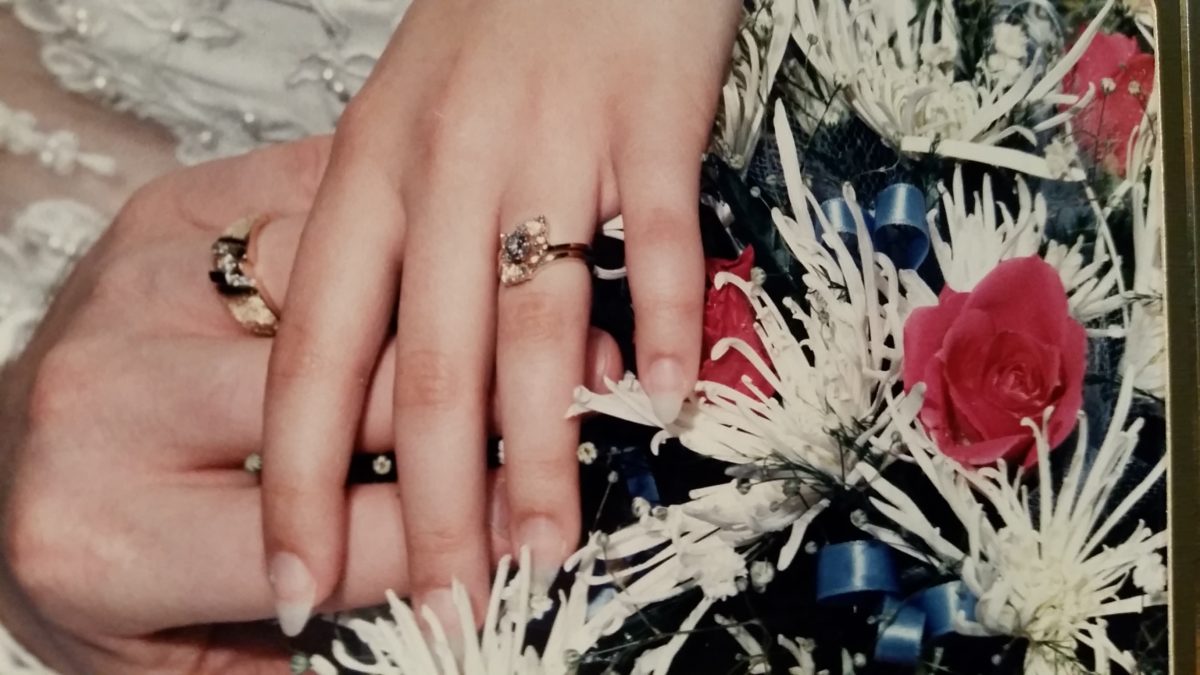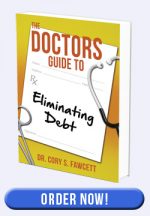Our wedding rings
I just returned from going on a weekend men’s retreat with my oldest son, Brian. We had a nice weekend together and my favorite part was the three hour drive each way. It gave us a chance to talk, which doesn’t happen as often as I’d like since he moved to his own house. I learned something new on this trip, I learned about his ring fund.
Brian’s wedding was two months ago. During the years he was single, long before he met his wife, he began saving for his bride-to-be’s wedding ring. He made a rule about dating: Every time he went on a date, he put $20 in his ring fund. This was a savings account that he would use to buy a wedding ring for his future wife.
What a simple concept we can all learn from. When you know there is an expense coming in the future, start saving money for it. Then you won’t need to borrow money when the expense arrives. I have been teaching this concept for years and he applied it to his situation. He knew that one of the girls he dates will become his future wife, so each date was one step closer to the purchase of his future wife’s wedding ring.
We could apply this same process to our next vacation and put money aside to pay for it before we leave. If we book a cruise, we can pay a portion of the bill every month leading up to the cruise and by the time we leave, it’s fully paid. Set aside money each month that will be used during the cruise as well. There will be no big bill awaiting us when we return home. Those big bills can spoil the relaxation benefits of any vacation, especially if we take months to pay them off. The time after the vacation should be filled with fond memories and not with recurring bills.
Buying a car is another great example. We know we will be replacing our car in the future. Instead of borrowing the money to do this, why not put money aside every month so we can pay cash for the car when the time comes? It goes in the spending plan under car replacement. When I work one-on-one to help doctors create a good household spending plan, this item is never in their first draft. Often, saving for the future is left out of the budget to get it to balance. Put it back in and make the budget balance with the future covered. Don’t purposely plan to borrow money in the future to pay these expected expenses.
Let’s look at an example of buying a $30,000 car. We can anticipate the expense and save for 5 years, or we can borrow the money and pay it off over five years. When we are saving the money, we earn interest on the savings along the way. If we earn 1% on the savings, we will need to save $487.81 a month to have the $30,000 in five years to buy the car. The total amount we had to put into savings is $29,268.60. If we borrow the money and have to pay interest instead of earn interest, it will cost a bit more. One of my current one-on-one clients is paying 6.55% interest on their car loan. That would be a $587.69 a month payment over five years for a total of $35,261.40. The difference is $5,992.80.
If we round off the cost difference in saving for a car verses borrowing for the same car it will cost us $6,000 more to borrow. If we factor into the equation a 40% tax rate, we need to earn an extra $10,000 to buy that car with payments instead of with savings. This leaves out the fact that if we come in with cash, we will likely get a discount on the purchase price.
Imagine expanding that $10,000 extra to everything we buy. If we buy 10 cars in our lifetime, we will need to earn an extra $100,000 to do it with borrowed money instead of saved money. Extrapolate it out to boats, vacations, houses, appliances and all the things we float on a credit card.
Why is this such a hard thing to do? Could this be the root of our problem with debt? We don’t have the discipline to save for the future so we borrow in the present and use up our future income on repaying our debt instead of living life. This is a much more expensive way to do things.
I was a very proud dad when I learned of my son’s ring fund. Follow his example and start saving for the purchases you know you will make in the future. You will have a lot more money in your pocket in the long run. If you have not already done so, read my book “The Doctors Guide to Eliminating Debt” and stop managing debt, eliminate it instead. If you are struggling to make this shift in your spending habits, contact me for one-on-one help to transition to a healthier way of handling your money.






Sounds like a pretty smart guy!
It does seem he turned out that way.